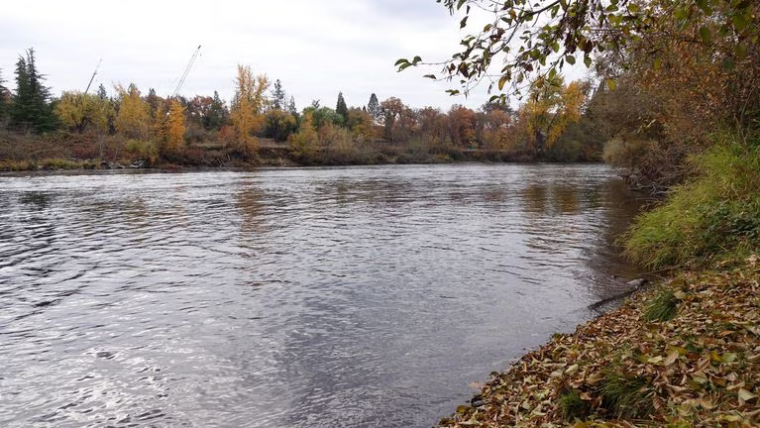Clean Water Act Lawsuit paves the way for Medford treatment plant improvements
Open gallery

In August of 2023, the City Council for the City of Medford voted to approve up to $300 million to upgrade the city’s Regional Water Reclamation Facility, a municipal wastewater treatment plant that today serves a population of 160,000 and discharges 18 million gallons of effluent per day into the Rogue River near Central Point, Oregon. For local river users and for Earthrise’s client, Northwest Environmental Advocates (NWEA), this was an important milestone in a fight for a cleaner Rogue that dates back over a decade.
In 2012, members of Rogue River Flyfishers, a fishing and conservation group, retained former DEQ biologist Rick Hafele to conduct a stream survey and biological assessment of the river downstream from the treatment plant’s outfall. The group’s members had grown tired of fishing the river amidst choking weeds, floating algae, and murky water, and were frustrated with DEQ’s inaction over the years. Mr. Hafele’s study identified significant adverse changes to the river ecology downstream of the treatment plant—an apparent violation of Oregon’s “biocriteria” water quality standard: “Waters of the State must be of sufficient quality to support aquatic species without detrimental changes in the resident biological communities.” (OAR 340-041-0011). When presented with the Hafele study, DEQ followed up with one of its own that found similarly, but the agency never stepped in to address Medford’s pollution problem.
Like all municipal wastewater treatment plants, the Medford facility discharges nitrogen and phosphorus—nutrients that are beneficial in small amounts, but at higher concentrations can fuel the growth of nuisance algae and undesirable aquatic weeds that choke out salmon habitat and depress levels of dissolved oxygen that fish need to survive. Nearly every metric of biological health has shown that Medford’s nutrient pollution is the primary cause of the water quality impairment in the Rogue River immediately downstream of the treatment plant.
On behalf of NWEA, Earthrise filed a Clean Water Act lawsuit against the City of Medford in 2018, alleging that the city was in violation of a condition of its NPDES permit that prohibits discharges that “cause or contribute to a violation of water quality standards” in the Rogue River. The evidence was so overwhelming that the city agreed to stipulate that its discharges did contribute to violations of the biocriteria standard, and in a September 2021 order, the District of Oregon found Medford liable for its Clean Water Act violations.
When DEQ finally reissued the city’s NPDES permit in 2021, it included first-ever numeric limits on nitrogen and phosphorus discharges. But, according to NWEA’s experts, those limits are not stringent enough to control the spread of Cladophora, an aggressive form of nuisance algae that is indicative of nutrient pollution. Earthrise challenged the new permit, and the case remains pending before the Oregon Court of Appeals.
According to an August 7, 2023 article in the Rogue Valley Times, Medford “faced legal challenges and initially balked at the upgrade of the facility because of the high cost and difficulty of removing the phosphorous and nitrogen.” The article mentions NWEA’s Clean Water Act suit, and quotes the city’s Public Works Director as saying: “My recommendation is that we need to comply with the federal Clean Water Act.” While the planned upgrades may not be enough to end Medford’s contributions to the Rogue River’s ongoing biocriteria impairment, they are a big step in the right direction and show the benefits of targeted, strategic environmental litigation.
Earthrise Law Center is located in Wood Hall on the Law Campus.
MSC: 51
email earthrise@lclark.edu
voice (503) 768-6736
fax (503) 768-6642
Allison LaPlante
Earthrise Law Center
Lewis & Clark Law School
10101 S. Terwilliger Boulevard MSC 51
Portland OR 97219

